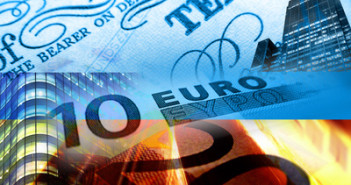After a strong rally this week, EUR/USD is steady, as 27 European leaders are meeting in Brussels for the European Economic Summit. Will the euro’s momentum continue after the Summit? Spain received a dose of good news after the Moody’s credit agency maintained the country’s credit rating, and Spanish bond prices have fallen since the announcement. In the US, the economy is showing signs of improving, and we’ll see if the upbeat trend continues, as the US releases Unemployment Claims and the Philly Fed Manufacturing Index later today.
Here’s an update about technical lines, fundamental indicators and sentiment regarding EUR/USD.
EUR/USD Technical
- Asian session: Euro/dollar was steady, consolidating just above 1.31. The pair is unchanged in the European session.
- Current range: 1.3105 to 1.3170.
Further levels in both directions:Â Â 
- Below: 1.3060, 1.30, 1.2960, 1.29, 1.2814, 1.2750, 1.2670, 1.2624 and 1.2587.
- Above: 1.3105, 1.3170, 1.3290, 1.34, 1.3437 and 1.3480.
- The pair is testing 1.3105. 1.3170 is stronger.
- 1.3060 is the next line on the downside.
Euro/dollar steady ahead of EU Summit– click on the graph to enlarge.
EUR/USD Fundamentals
- All Day: EU Economic Summit. Day 1 0f 2.
- 8:47 Spanish 10-year Bond Auction. Actual 5.46%.
- 12:30 Unemployment Claims. Exp. 367K.
- 14:00 US Philly Fed Manufacturing Index. Exp. 1.3 points.
- 14:00 US CB Leading Index. Exp. 0.1%.
- 14:30 US Natural Gas Storage. Exp. 46B.
EUR/USD Sentiment
- Spanish bond yields dropping: Spain’s 10-year bond yields continue to fall, after Moody’s maintained Spain’s credit rating at Baaa3 with a negative outlook. Although the grade is just one notch above junk status, the move came as a surprise, as many analysts were expecting a downgrade. This week’s auction raised 4.614 billion euros, above the expected 4.5 billion.The yield on 10-year bonds dropped to 5.45%, down from 5.67% at the previous auction. Despite the initial market enthusiasm, Moody’s decision could actually result in further market uncertainty and instability, if Spain elects to dealy a request for aid until November.
- Low expectations for EU Summit: By now, investors have (hopefully) learned to keep their expectations at a minimum when it comes to EU Summits. The meeting in Brussels today and Friday will be the fourth this year and these grandiose photo events rarely result in any dramatic breakthroughs. Greece and Spain will, of course take center stage, as the EU grapples with the crippling debt crisis engulfing both countries. In addition, the 27 European leaders will discuss plans to further integrate the Euro-zone. Germany is interested in overhauling the present system and creating a new “super commissioner†who would be responsible for fiscal policy, but it’s an open question how much support is out there for this initiative.
- Spanish bailout a go?: Speculation is swirling that Spain may formally make an aid request at the EU Summit, despite the denials out of Madrid. According to one possible scenario, the request will only be for a credit line, rather than a full bailout. This would satisfy a requirement for the ECB’s OMT bond buying program. Germany seems to be in agreement with this idea, since it doesn’t require borrowing funds from the ESM. This credit line, actual titled the Enhanced Conditions Credit Line, was introduced earlier this week as a new part of the ESM. Italian Finance Minister Vittorio Grilli noted that a 100 billion euro aid request from Spain would shave 1.5 percent off Italy’s economic output. Although Grilli was quick to add that Italy had to be “generousâ€, clearly he is no great supporter of the bailout. The high-stakes posturing between Spain and the EU makes for a most interesting background as the leaders convene at the EU Economic Summit in Brussels.
- No deal for Greece: Greek PM Antonis Samaras seems to have changed his tune, after declaring earlier in the week that the Greek government and its international lenders would reach a deal on the country’s mountain of debt before the EU Economic Summit. Samaras is now saying the talks will not wrap up before the Summit. Greece has been meeting with the European Union, European Central Bank and International Monetary Fund on a new set of spending cuts and economic reforms in exchange for the next installment of bailout funds, worth 31.5 billion euros. The talks have dragged on for months, and Greece claims it will run out of funds in November if it doesn’t receive the funds. If an agreement can be reached, it will bring some much-needed stability to the markets and to the Euro-zone.
- Positive Chinese data improves risk sentiment, bolsters euro: China can take some credit for this week’s rally by the euro, after some positive numbers from the Asian giant. The country’s trade surplus widened in September, and exports jumped 10% compared to the same period a year ago. GDP was done slightly to 7.4%, but matched the market estimate. Strong Chinese readings could indicate an improving global economy, which is bullish for currencies such as the euro, as investors are willing to take on more risk and move away from the safe-haven dollar. On the downside, the dispute between China and Japan over some contested islands continues, and trade is down between the two Asian giants. For example, Japanese auto sales to China have dropped between 35-50% in recent months.
- US economy brightens: Recent data out of the US is showing an improving economy. The Unemployment Rate dropped to 7.8%, and  retail sales, housing numbers and consumer confidence are all pointing up. This has been good news for US consumers and has given a boost to President Obama, who finds himself in a very closely contested election. However, gas prices have spiked, government debt is at record levels, and the road to recovery promises to be a long one.



